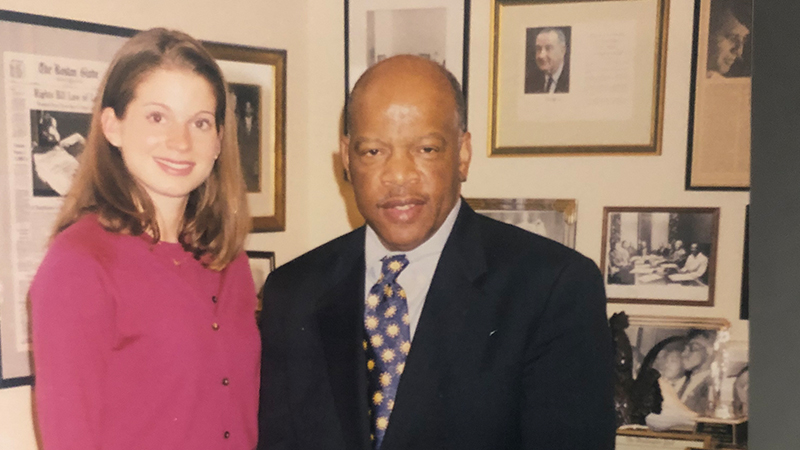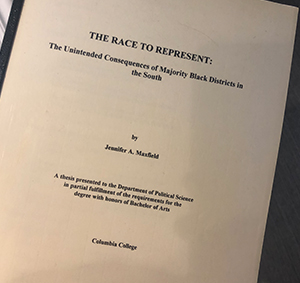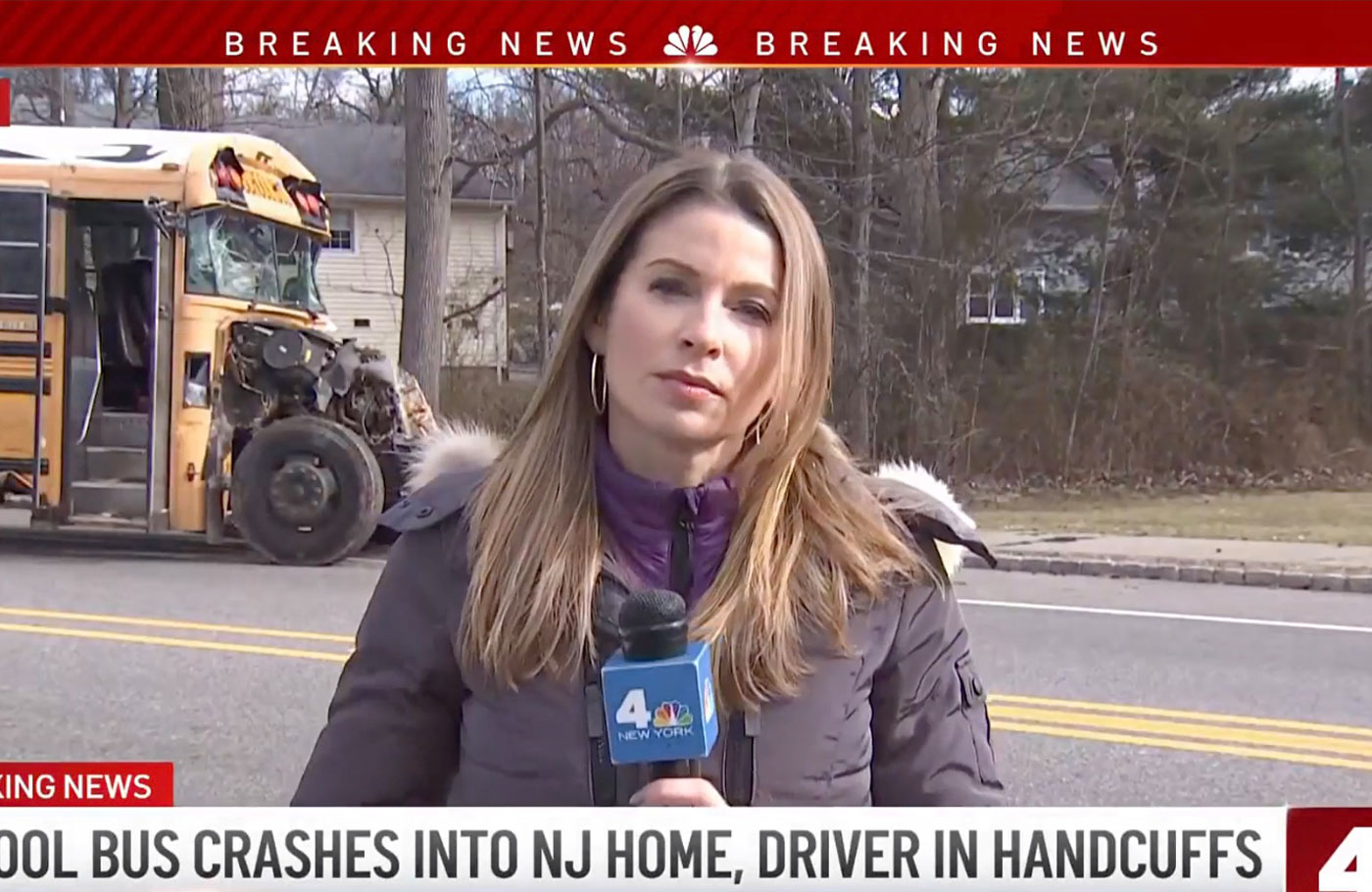
Teaching the Next Generation
When I was 21 years old, Congressman John Lewis granted me an interview for my senior honors thesis at Columbia. He was interested in my research on how Majority Black districts in the South formed after the 1990 census unintentionally helped Republicans in neighboring districts get elected. When I wrote him a letter describing my work (it was 1999 and yes, it was an actual letter), I honestly never imagined that one of the founders of the Civil Rights movement would make time to sit down with a college senior with a lot of ideas but a thin resume.
 Much to my surprise and delight, Congressman Lewis did invite me to spend time with him at his Congressional office in Washington, DC. Walking into his office was like walking into a museum– his photos and awards lined every wall and covered every surface. He spent more than half an hour with me, patiently answering my questions about the dual roles of advocating for his constituents in Georgia and authoring legislation in the House. I asked him if he thought that in the future, we would see more Black Congresspeople representing majority white districts. He answered, with his signature hope and optimism:
Much to my surprise and delight, Congressman Lewis did invite me to spend time with him at his Congressional office in Washington, DC. Walking into his office was like walking into a museum– his photos and awards lined every wall and covered every surface. He spent more than half an hour with me, patiently answering my questions about the dual roles of advocating for his constituents in Georgia and authoring legislation in the House. I asked him if he thought that in the future, we would see more Black Congresspeople representing majority white districts. He answered, with his signature hope and optimism:
“I think we will see a growing number in the years to come, especially in the American South, where there’s a greater sense of hope and optimism on the issue of race, where people are laying down the question of race, where people are laying down the issue and the burden of race because that person is the best person for the district, for the needs and concerns and for the good of the total community.”
Reflecting now on that day in February 1999, I am inspired by Congressman Lewis’ commitment to education, and to passing along his wealth of knowledge to the next generation. He had absolutely nothing to gain by speaking with me, except to ensure a truthful and nuanced version of how he and other Black Congresspeople from the South had risen to power, and how they intended to keep it in a changing electoral landscape.
Turns out Congressman Lewis was himself the author of a letter that elicited an improbable response, albeit on a much grander scale than mine. After the Congressman’s death at age 80 in July of 2020, I read a fascinating anecdote in his obituary in the New York Times. At the age of 18, John Lewis had written to Martin Luther King, a letter that was so compelling that Dr. King sent him a bus ticket to come meet him in Montgomery. Five years later, Lewis was speaking alongside Dr. King at the March on Washington.
The time I spent listening and learning from Congressman Lewis inspired me and heavily influenced my decision to become a reporter. But it also inspired me to want to be a teacher, to pass along my knowledge and insight to the next generation. It will always be a highlight of my life, that I had the opportunity to meet this incredible man.
Search
More After the Break: Press Hits
-

Unfinished Business: Revisiting The Stories That Endure
Unfinished Business: Revisiting The Stories That EndureJen Maxfield, veteran Emmy-winning...
-

Unforgettable News Stories
Unfinished Business: Revisiting The Stories That EndureJen Maxfield, veteran Emmy-winning...
-

In her new book, Jen Maxfield delves deep into 10 local news stories she covered for WNBC
In her new book, Jen Maxfield delves deep into 10...
-

More After The Break on St. Louis InTune
More After the Break on St. Louis InTune Jen talks...
-

Author & Emmy Winning Journalist Jen Maxfield On The Five Things You Need To Create A Successful Career As A Journalist
Author & Emmy Winning Journalist Jen Maxfield On The Five...
-

Another Draft of History
Stories That Inspire Hope Read Original Article Here
-

NBC New York’s Jen Maxfield: Telling the Rest of the Story
NBC New York’s Jen Maxfield: Telling the Rest of the...
-

How Unjust Drug Policy and Systemic Racism Created a Class of Innocent Felons
How Unjust Drug Policy and Systemic Racism Created a Class...
-

New Jersey Morning Show
Unfinished Business: Revisiting The Stories That EndureJen Maxfield, veteran Emmy-winning...
-

NBC Reporter Jen Maxfield’s New Book Revisits Past Interviews She Couldn’t Shake
NBC Reporter Jen Maxfield’s New Book Revisits Past Interviews She...
-

Who’s Who From New York Media Come Out To Celebrate NBC News Anchor + Reporter Jen Maxfield’s Book Launch
Who’s Who From New York Media Come Out To Celebrate...
-

14 books to make your July bearable
14 books to make your July bearable What a good...
-

A Reporter Returns
A Reporter ReturnsEmmy Award-winning reporter and anchor for NBC New...
-

Stories That Inspire Hope
Stories That Inspire Hope Read Original Article Here


